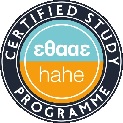 Artificial Intelligence (AI) is no longer a distant promise. In human resources (HR), it is rapidly moving from experiment to practice, reshaping how organizations attract, engage, and develop talent. For recruitment companies, universities, and enterprises alike, AI offers both transformative opportunities and serious responsibilities. The question is not whether AI will influence HR, but rather: how do we use it wisely?
Artificial Intelligence (AI) is no longer a distant promise. In human resources (HR), it is rapidly moving from experiment to practice, reshaping how organizations attract, engage, and develop talent. For recruitment companies, universities, and enterprises alike, AI offers both transformative opportunities and serious responsibilities. The question is not whether AI will influence HR, but rather: how do we use it wisely?
This article explores the debate through three pillars: how AI can help, what we must be careful about, and how leaders are framing this transformation.
How AI Can Help HR
AI’s greatest strength lies in its ability to process vast amounts of data with speed and consistency. In recruitment, AI platforms can analyze resumes, match candidates to job descriptions, and even assess skills through predictive analytics. For HR teams, this means less time spent on administrative screening and more energy devoted to building human relationships.
Industry leaders often describe AI as a tool that replaces “soul-crushing jobs” — repetitive, low-value tasks that consume hours but add little strategic benefit. In HR, AI can automate scheduling, streamline onboarding, and personalize employee learning paths. Instead of eliminating the “human” from human resources, AI can elevate professionals into more strategic roles where empathy, creativity, and cultural understanding matter most.
But here’s a question: Are we ready to redefine HR’s purpose, moving from transactional processes to true strategic leadership, supported by AI?
Hire PP’s approach: At Hire PP, we use AI to simplify and accelerate candidate-job matching, helping employers reach the right talent faster and more fairly. By removing repetitive tasks from recruiters’ workflows, we give them more time to focus on building relationships and guiding careers.
What We Must Be Careful About
For every promise, there is a responsibility. AI in HR raises concerns about privacy, fairness, and transparency. Candidate data is sensitive by nature: resumes, performance reviews, and assessments. Storing and processing such data with AI requires safeguards to avoid misuse or breaches.
Bias is another critical issue. AI learns from historical data, and if that data reflects inequality, the system may replicate — or even amplify — those biases. An algorithm might unintentionally favor certain profiles while excluding others, not because of merit but because of flawed training data.
This is why governance is essential. Organizations must ensure that AI tools are transparent, explainable, and auditable. The European Union’s AI Act, for example, classifies HR applications as “high-risk,” underscoring the need for compliance and oversight.
The deeper question remains: Can we trust machines to make fair judgments about people’s potential — or must final responsibility always remain with human decision-makers?
Hire PP’s approach: We are committed to responsible AI. Our platform is designed with fairness and transparency at its core, ensuring candidate data is handled ethically and securely. We actively monitor our systems to minimize bias and provide clear, explainable insights — always keeping human decision-making in the loop.
Leadership Perspectives and the Road Ahead
Across industries, there is broad agreement that AI should not replace people but rather complement them. While many processes can be digitalized, uniquely human qualities — such as judgment, emotional intelligence, and ethical reasoning — remain irreplaceable. Instead, AI should free people to focus on what makes them distinctively valuable.
This vision is increasingly shaping corporate strategies. Companies that integrate AI into HR must balance efficiency with humanity. They must ask: how do we preserve trust while leveraging technology? How do we ensure employees feel valued, not reduced to data points?
AI will certainly change roles, but it will also create new opportunities. HR leaders who embrace AI thoughtfully can position themselves as architects of future-ready organizations — where technology and people work in harmony.
The real challenge lies not in the software itself, but in leadership’s willingness to ask the right questions:
- How do we design AI systems that reflect our values?
- How do we communicate transparently with employees and candidates about AI’s role?
- And perhaps most importantly: What kind of workplace do we want AI to help us build?
Hire PP’s approach: We work hand in hand with employers and candidates to build trust-based recruitment journeys. By aligning AI technology with human insight, we help organizations grow while ensuring candidates feel respected and empowered. Our mission is not just to fill positions, but to shape the future of work with fairness, inclusion, and vision.
Conclusion
AI in HR is not a passing trend; it is a structural shift. It can streamline recruitment, personalize employee journeys, and liberate professionals from routine work. Yet it also demands careful attention to ethics, data protection, and fairness.
The real test for HR — and for organizations at large — will be whether AI enables us to create workplaces that are not only more efficient, but also more inclusive, ethical, and human.
The conversation is just beginning. The next step is to ask ourselves: How do we harness AI to serve people — not the other way around?
About Hire PP (www.hirepp.com)
Hire PP is an all-in-one HR tech platform that helps employers and candidates shape the future of work together in Europe. Every day, we connect talent with best-fit opportunities and provide end-to-end recruiting solutions that balance the efficiency of technology with the human touch of meaningful connections. By combining AI-driven tools with people-first values, Hire PP is committed to building workplaces where innovation and humanity go hand in hand.















